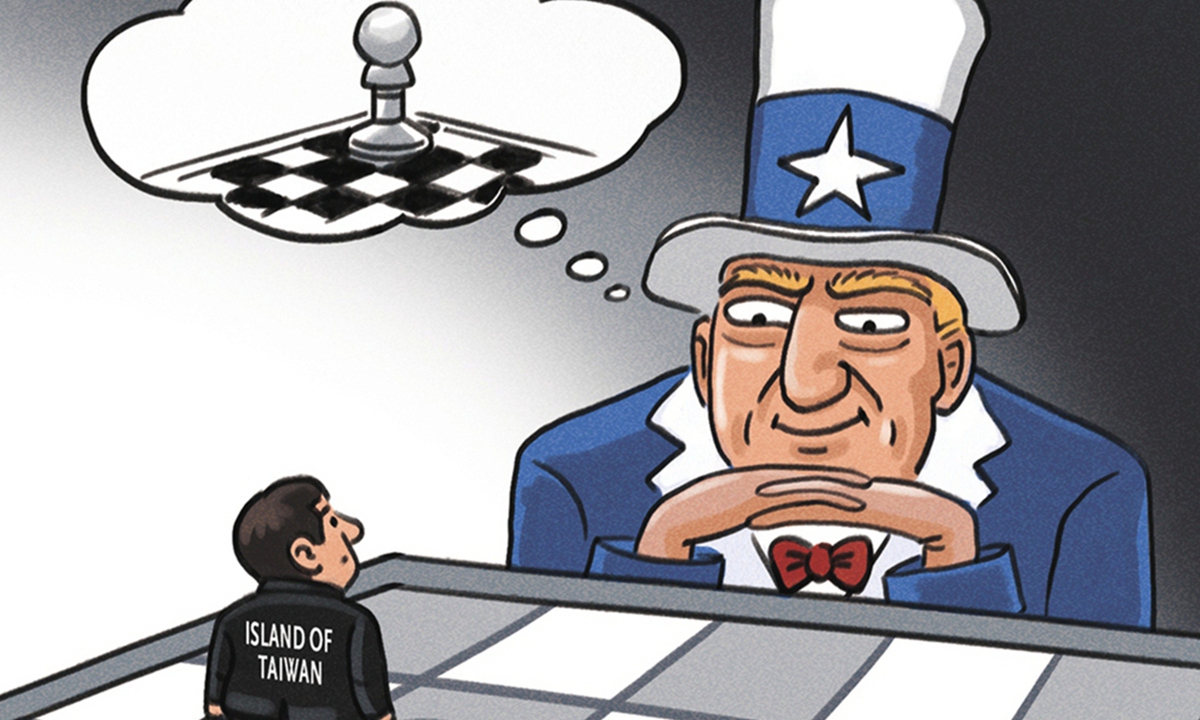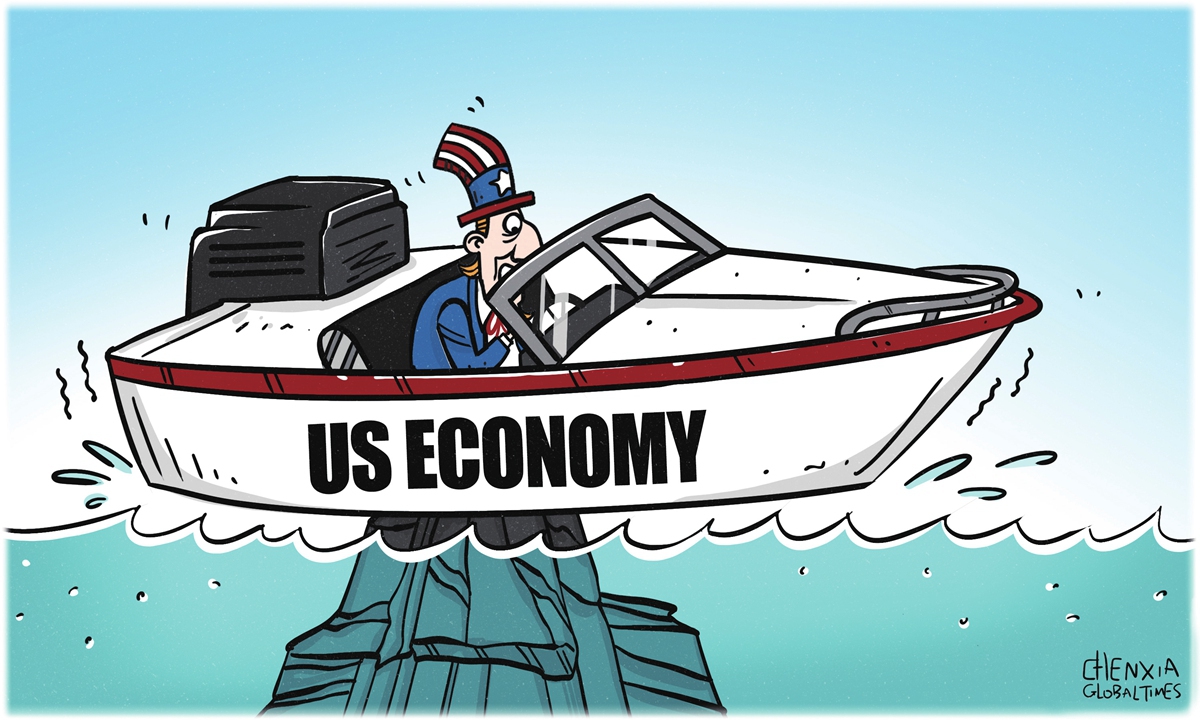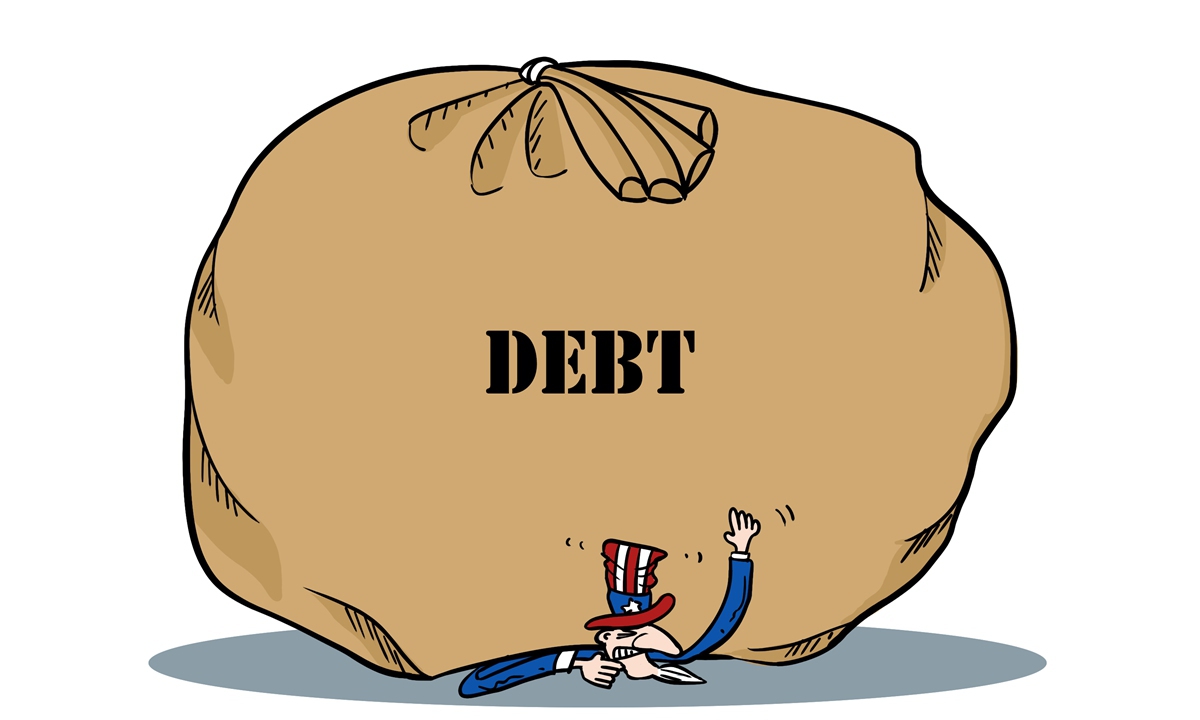
Illustration: Liu Rui/GT
It seems that some US politicians have become increasingly inclined to exploit the island of Taiwan's reliance on Washington in an attempt to gain both geopolitical and economic interests from this strategic pawn. However, this deepening reliance could potentially expose the Taiwan region to greater risks in the future, making it more easily fall victim to America's pursuit of its own economic and strategic interests.
US Senator Dan Sullivan from Alaska said on Wednesday during a speech at US think tank the Hudson Institute that it makes sense for Taiwan to consider importing liquified natural gas (LNG) from Alaska, citing the reason that it would "make China hesitant" when making "some kind of energy blockade," VOA Chinese reported on Thursday.
While his suggestion ostensibly seems to offer a solution for addressing the energy challenges faced by the island of Taiwan, it cannot mask the malicious strategic ambition of tying the Taiwan island tighter to Washington's chariot while doing everything possible to extract the island's economy.
What is particularly concerning is that as American politicians continue exploiting the tensions around the Taiwan Straits for their own political and economic interests, there has indeed been a trend in recent years wherein the Taiwan economy has become increasingly reliant on the US. Such dependency raises concerns about the future political and economic stability of the region.
For instance, the island of Taiwan's export share to the US has been steadily increasing, making the US one of the island's key trading partners. In October, exports to the US jumped 20.5 percent to $8.65 billion, though off September's rise of 27.3 percent, according to statistics from Taiwan authorities. In the first 10 months of this year, the island's exports to the US have risen to 23.8 percent of total exports.
These closer economic ties are evident not only in the goods trade, but also across other sectors, including investment and technological cooperation. With strong demand for chips in the US, particularly for high-end versions, the US actively promotes the revitalization of its own domestic manufacturing sector, leading to a growing likelihood that Taiwan's high-tech factories may gradually relocate to the US, and exacerbates the brain drain and industrial hollowing out of the island. The US' efforts to get key players in the island's semiconductor industry, such as TSMC, to establish manufacturing facilities in the US is a typical example.
Issues such as the import of ractopamine pork from the US and US arms sales to the island repeatedly show that the Democratic Progressive Party (DPP) authorities have compromised the well-being of the island's people.
Moreover, the Taiwan region's over-reliance on the US for technological innovation and industrial upgrading could undermine its competitiveness within the global supply chain. This dependence may also lead the island to adopt a stance in international affairs that increasingly aligns with US interests, exacerbating tensions across the Taiwan Straits.
Fundamentally speaking, by exploiting tensions across the Taiwan Straits, the US is forcing the island's economy to become increasingly reliant on US market and supplies, thereby seeking to gain greater leverage in the Taiwan question. The US encourages the island to transfer semiconductor industries, purchase military equipment and consider buying American LNG, which not only brings the US revenue but also enhances its political influence over the island by controlling its economic lifeline. This makes it easier for the US to achieve its strategic objectives in the Asia-Pacific region, which is aimed at containing the rise of the Chinese mainland in geopolitical terms.
Some in the island, particularly the DPP authorities, may truly believe that closer ties with the US could earn them security guarantees. However, this viewpoint is a serious misinterpretation of the core goal and commitment of the mainland to resolving the Taiwan question and achieving national reunification.
Historical experience shows that no external force can guarantee the security of "Taiwan independence" forces. Taiwan is an inalienable part of China, and no force can tie it to the chariot of secession. The DPP's attempt to hype up separatism is unlikely to bring genuine security and stability to the island - instead, they may expose the island's economy to greater danger in long run.




